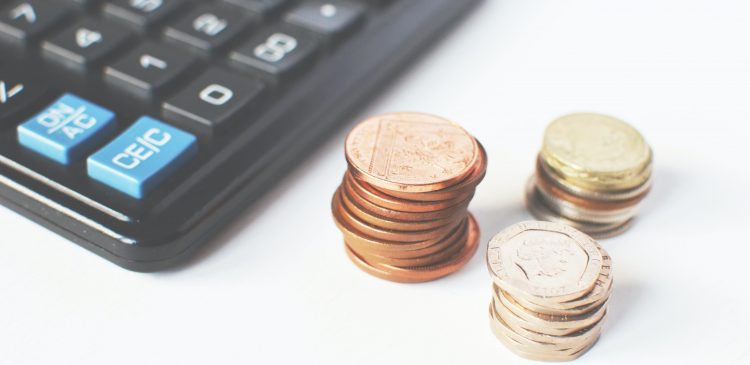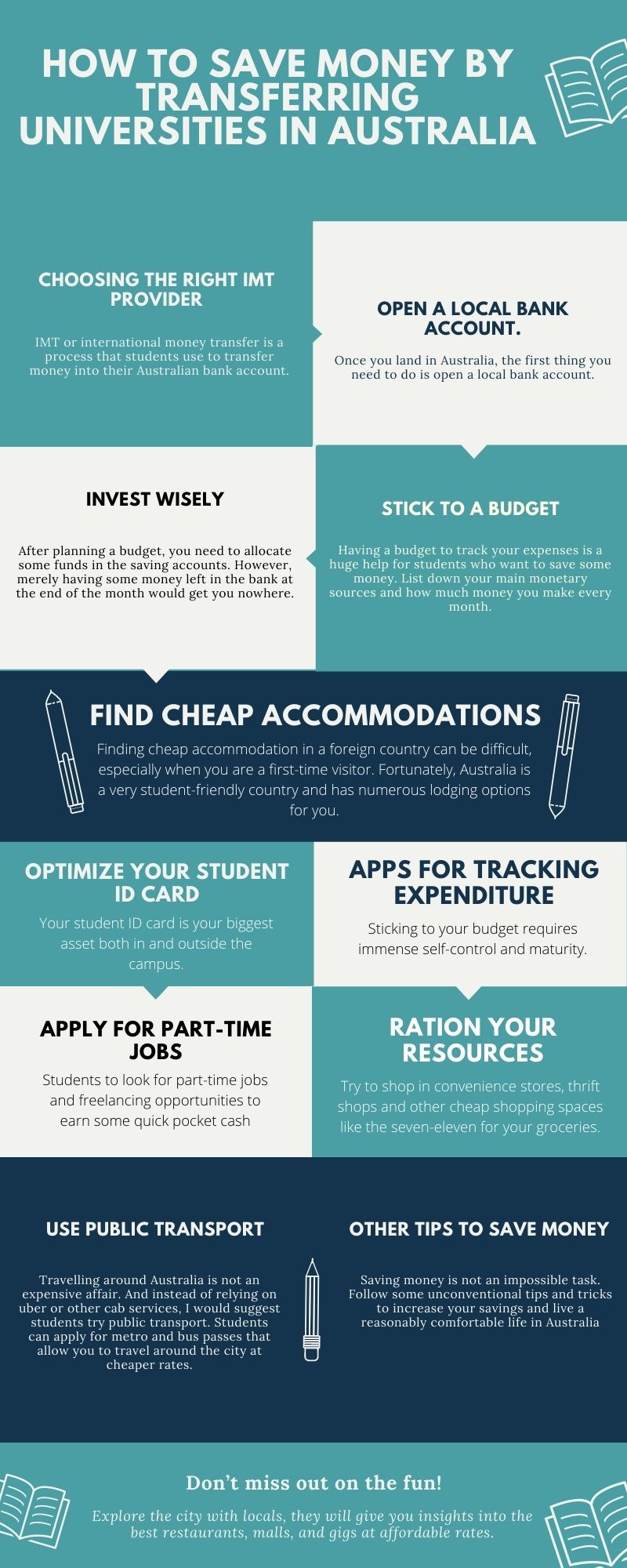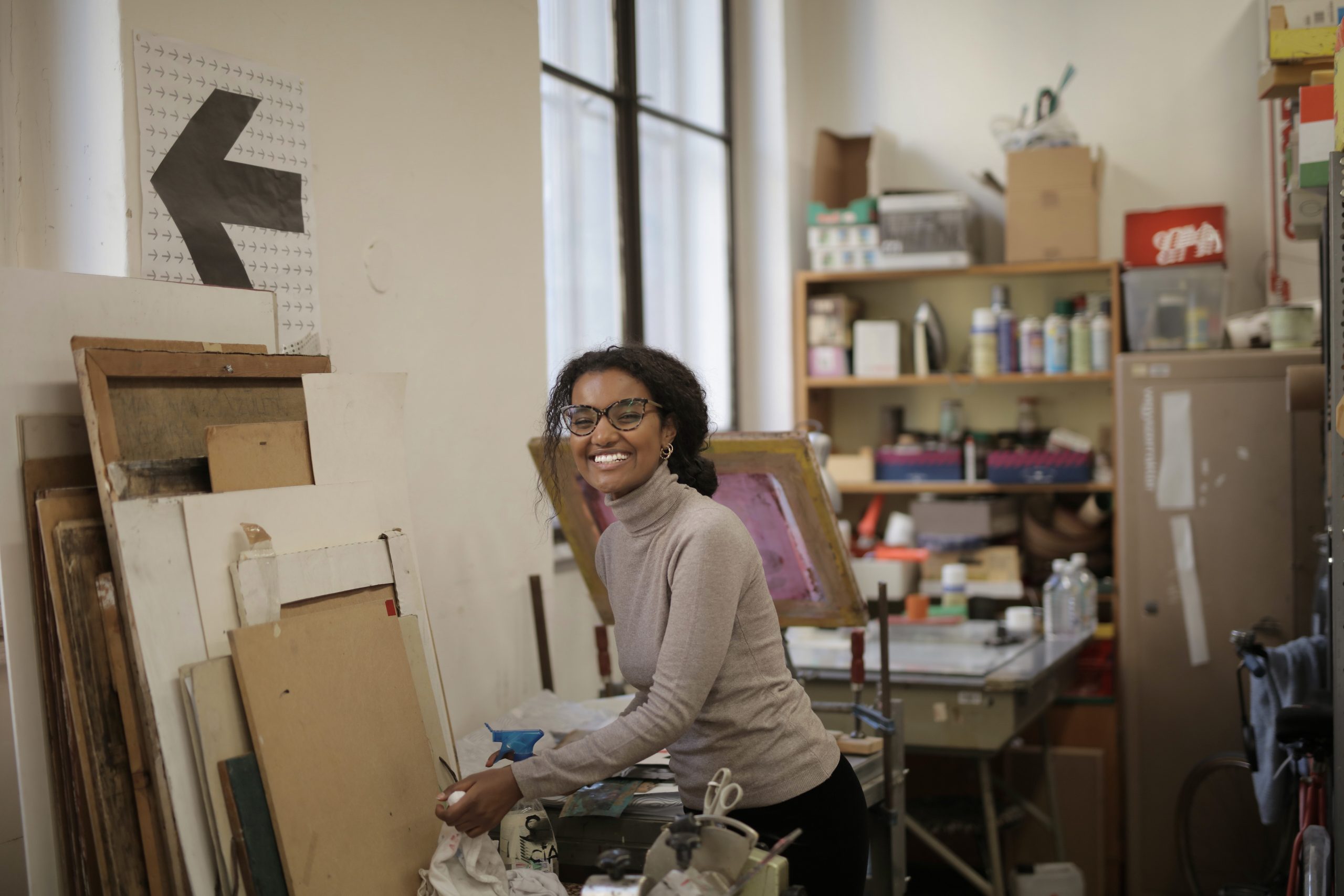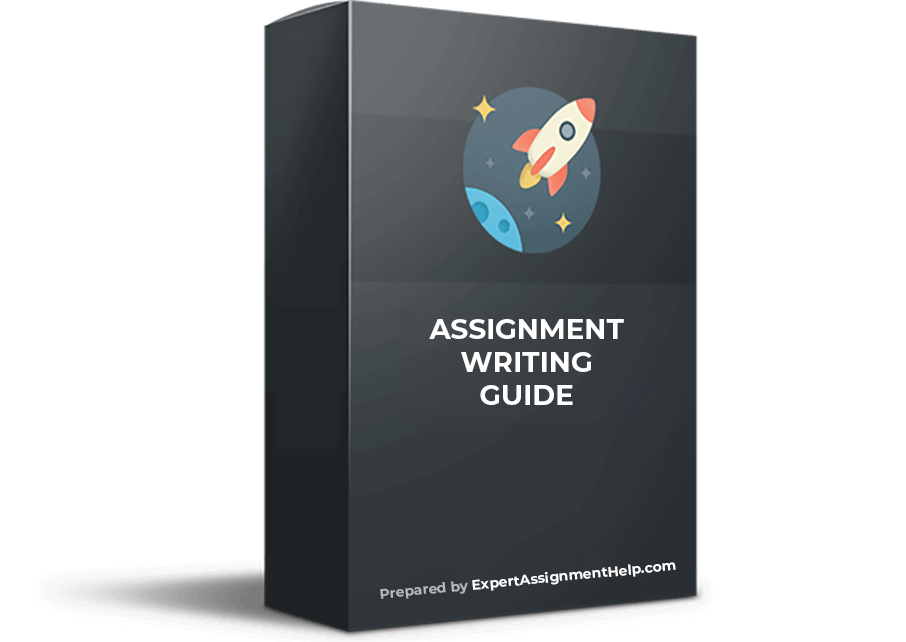How to save money by transferring Universities in Australia

Studying in Australia is a dream come true for many students. The universities here offer extensive courses and lucrative career prospects to foreign students. However, students can find it challenging to manage their finances, especially when they are out of their comfort zones.
This is where smart financial planning and money management comes into the picture. Studying in a foreign college doesn’t always have to be an expensive affair. Read on to know how to save money by transferring universities in Australia.
Choosing The Right IMT Provider
IMT or international money transfer is a process that students use to transfer money into their Australian bank account. These currency exchange services first convert your native currency into Australia’s cash. You must read through the policies, exchange rates and fees added to every transaction.
The first thing you need to avail the IMT services is a local bank account. You can consult an IMT agent and FX experts to know more about the exchange rates and low margins. I would suggest students compare the prices and currency rates to get the best deals.

Open A Local Bank Account.
Once you land in Australia, the first thing you need to do is open a local bank account. Lucky for you, Australia does have the provision for a student’s bank account. You can submit your documents and application forms about 3 months in advance before your arrival here.
Students have a wide range of bank account options to pick from. There are everyday transactional accounts that allow you to withdraw/deposit money daily. Westpac, ANZ, Commonwealth banks are some credible institutions where you get effective financial options for foreign students.
A local bank account saves you a lot of time and trouble. You don’t have to deal with foreign exchange fees and low currency exchange rates piled on your credit card balance. To open a bank account, you need to fill an online form and provide passport details arrival date and more.
Stick To A Budget
Having a budget to track your expenses is a huge help for students who want to save some money. List down your main monetary sources and how much money you make every month. Based on that, you can decide how and where to allocate those funds effectively.
I suggest students focus on their basic needs first. Make provisions for necessities like rent, your bills, food expenses, transport, university costs and more. You can then have funds for additional spending, outings, shopping etc.
Your resources are limited, and your costs increase at an exponential rate. Self-monitoring, proper financial planning and money management is the need of the hour. The trick is to learn how to prioritize.

Invest Wisely
After planning a budget, you need to allocate some funds in the saving accounts. However, merely having some money left in the bank at the end of the month would get you nowhere. You also need to invest wisely in fixed deposits and other policies.
Also, while we are at it, get medical insurance ASAP. With healthcare insurance companies like OSHC healthcare insurance, students can get free or subsidized medical. These policies protect you in case of health emergencies, accidents, and other contingencies.
Ensure that you read the terms and conditions of the policy carefully. I recommend students to compare the prices of the procedures before investing. And if you have enough funds saved up, you can even buy policies, shares or other deposits.
Find Cheap Accommodations
Finding cheap accommodation in a foreign country can be difficult, especially when you are a first-time visitor. Fortunately, Australia is a very student-friendly country and has numerous lodging options for you.
Enquire about the hostel and college dorms offered by the university. A quick search online would also give you a list of all the apartments and flats available for rent. Plus, there are homestay programs in Brisbane where you can stay with a family.
Facebook marketplace and Gumtree are reliable platforms for getting second-hand or used furniture at reasonable prices. Here, you can directly contact the owners, bargain for the item, and get it delivered to your doorstep.
Sticking to your budget requires immense self-control and maturity.
Optimize Your Student ID Card
Your student ID card is your biggest asset both in and outside the campus. Ensure that you carry your IDs wherever you’re going. Most stores around the college area would accept student ID cards and allow great discounts.
Students in Australia enjoy special concessions when applying for educational loans, insurance policies and other investments. With the student ID card, you also enjoy tax levies, discounts, and special offers in almost every store for groceries etc.
Apps For Tracking Expenditure
Sticking to your budget requires immense self-control and maturity. And not every student might have the foresight to remember all their expenses. This is where technology comes into the picture. Today you have apps for tracking your expenses, for checking bank balances, for quick cash transfers and more.
Use these apps to figure out the cheapest of deals in electronics, flight tickets, and other shopping items. You can also pay your bills, get amazing discounts, and cash prizes every time you make a transaction.
Some applications like XE Currency give you the current currency exchange rates that cover about 180+ currencies. Other platforms like Mint allows students to keep an eye out on their monthly expenditure.

Apply For Part-Time Jobs
Only saving money would get you nowhere. You also need to find out unique and lucrative ways to earn more money. I recommend students to look for part-time jobs and freelancing opportunities to earn some quick pocket cash
Part-time jobs are flexible and require little to no technical skills. Of course, there are positions where the company expects the candidates to have some eligibility and certification. It’s best that you read through the job description carefully before applying for it
Freelancing is an excellent addition to your bio and gives you ample experience of the “real-world”. You can even take up crash courses, diploma degrees and other online certification programs for extra brownie points.
Ration Your Resources
Saving money also involves rationing your resources. Don’t waste electricity, water, food, or all other resources. It saves your power and water bills and food expenses. Try to shop in convenience stores, thrift shops and other cheap shopping spaces like the seven-eleven for your groceries.
Also, it would be better if you learn to be self-reliant with your chores. And you wouldn’t find house help in the neighbourhood. Collect your coupons, keep an eye on discounts and shop online to spare a lot of time and trouble.
Also, look for profitable deals, discounts on gym memberships and referrals wherever available. These are the best ways to spend smart and reduce any wastage.
Collect your coupons, keep an eye on discounts and shop online to spare a lot of time and trouble.
Use Public Transport
Travelling around Australia is not an expensive affair. And instead of relying on uber or other cab services, I would suggest students try public transport. Students can apply for metro and bus passes that allow you to travel around the city at cheaper rates.
You can apply for the bus pass online. Simply submit your personal information, student ID details and more. There is a bike/bicycle for hire as well that you can use to commute to college every day. Public transport gives you an authentic experience of the city.
Other Tips To Save Money
Saving money is not an impossible task. Follow these unconventional tips and tricks to increase your savings and live a reasonably comfortable life in Australia
- Apply for freelancing jobs and gigs
- Enrol for online scholarship programs
- Explore the cheap university store
- Get your furnishings and other equipment second-hand from Gumtree
- Learn how to cook at home/ avoid eating outside
- Check out the local library or online learning platforms for free papers and journals
Don’t miss out on the fun!
Now, I understand that you cannot always be stoic and stringent about your expenses. There will be times when you would want to splurge on things. Keep some provision in your budget for outings and shopping.
Also, explore the city with locals, they will give you insights into the best restaurants, malls, and gigs at affordable rates. Your student ID can also give you some effective discounts in cafes and pubs, provided you have proper identification.
Furthermore, students can also expand your contacts, reach out to artists, and even perform at these clubs for some extra cash.

The Bottom Line
Students who transfer to Australian universities can expect some exciting experience. College life allows you to grow up and take charge of yourself. And the quickest way to do that is to control your finances. Spend responsibility and try to save and invest as much as possible.
However, amidst all the adulting, don’t forget to have some fun. It is alright to occasionally cut some slack and go out on a shopping spree sometimes. I hope this guide and my money-saving tips would be of any help.


